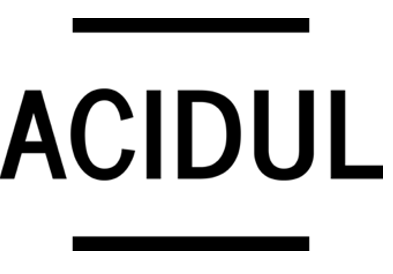English below
ACIDUL, en collaboration avec le Service Recherche et le Graduate Campus, s’est penchée sur les financements privés – par des fondations, des associations, des ONG, etc. – de la recherche à l’UNIL. Pour mieux saisir la place que prenaient ces soutiens et les conditions dans lesquelles ils étaient octroyés, un questionnaire en ligne a été envoyé aux doctorant·e·s et membres du corps intermédiaire, en comprenant les ALUMNIL. Parmi les questions posées : le type de financement (projet avec salaire ; frais de recherche ; projet avec salaire tiers ; frais de congrès, etc. ; séjour hors UNIL ; autre), le montant demandé et la réponse obtenue.
Plusieurs résultats valent la peine d’être partagés.
Tout d’abord, les demandes de financement par des organismes privés – qui excluent donc les fonds accordés par l’UNIL et par le Fonds national suisse de la recherche scientifique (FNS) – proviennent surtout de la Faculté de biologie et de médecine. Ce constat n’est pas surprenant, car la faculté fait appel de longue date à des bailleurs de fonds privés. On observe ensuite que ce sont avant tout les financements qui incluent un salaire que recherchent les doctorant·e·s et membres du corps intermédiaire, ce qui confirme l’insuffisance actuelle de l’offre sur fonds publics. Suivent les demandes pour des frais de recherche (par exemple, travail de terrain, visite d’archives, frais de publication), puis les projets avec salaire tiers, qui permettent d’embaucher d’autres personnes.
Les candidat·e·s ont soumis des demandes de fonds à 56 organismes privés. Parmi ceux-ci, les plus sollicités sont la Société académique vaudoise, la Fondation Emma Muschamp, la Novartis Foundation for Medical-Biological Research et la Fondation Erna Hamburger.
En ce qui concerne le statut des candidat·e·s au moment de la demande, 57% d’entre eux et elles étaient sans contrat. Autrement dit, ces personnes étaient sans financement public. Les doctorant·e·s qui n’ont pas ou plus de financement de thèse sont surreprésenté·e·s.
On note également d’une part que 60% des demandes n’ont pas abouti à un financement, d’autre part que seul un quart des demandes aurait permis de financer un peu moins d’un an de salaire d’un·e doctorant·e si elles avaient abouti. Les organismes les plus généreux sont les suivants : Fondation Leenaards, Fondation Bryn Turner-Samules, Swiss Lung Association, Fondation Emma Muschamp.
Enfin, en tenant compte du nombre important de personnes qui ont reçu le questionnaire (entre 4000 et 4500), notons que peu de personnes ont répondu. On peut se demander si ce faible taux de réponse révèle un faible taux de demandes pour ce type de financement. Par ailleurs, nous avons remarqué qu’il règne une certaine confusion entre ce qui relève d’un financement public et privé. De nombreuses réponses ont en effet dû être écartées, car elles portaient sur des financements publics.
De ces résultats, on retiendra surtout le fait que les financements privés permettent seulement de financer des événements d’appoint de la recherche et qu’ils ne peuvent se substituer aux financements publics en ce qui concerne les salaires.
ACIDUL, in collaboration with the Service Recherche and the Graduate Campus, has looked into private funding of research (by foundations, associations, NGOs, etc.) at UNIL. To better understand the extent of this support and the conditions under which it is granted, an online survey was sent to PhD students and the mid-level academic staff, including ALUMNIL. Questions concerned, for instance, the type of funding (research project with salary; research expenses; research project with third-party salary; conference, etc.; research stay outside of UNIL; other), the amount requested, and the answer obtained.
Several results are worth sharing.
First of all, requests for funding by private organizations – which therefore exclude funds granted by UNIL and the Swiss National Science Foundation (SNSF) – mainly come from the Faculty of Biology and Medicine. Such a finding is not surprising given that the faculty has long called on private donors. Moreover, projects with a salary make up most applications, which confirms the scarcity of public funding offers today. Next are applications for research costs (e.g. field work, visits to archives, publication fees), followed by projects with third-party salaries, which allow to fund other researchers.
Candidates submitted applications for funding to 56 different organizations. Among these, the most solicited are the Société académique vaudoise, the Emma Muschamp Foundation, the Novartis Foundation for Medical-Biological Research and the Erna Hamburger Foundation.
Regarding the status of the candidates at the time of application, 57% of them were without a contract. In other words, they did not have any kind of public funding. PhD students who do not have or no longer have funding are over-represented.
Furthermore, it appears that 60% of applications did not result in any funding at all, and only a quarter of applications could have funded a little less than a year’s salary for a PhD student had they been successful. The most generous organizations are the following: Fondation Leenaards, Bryn Turner-Samules Foundation, Swiss Lung Association, Emma Muschamp Foundation.
Finally, it should be noted that few people responded to our survey compared with the number that received it (between 4000 and 4500 people). Could such a low response rate indicate a low rate of demand for this type of funding at UNIL? Besides, there seems to be a certain confusion between public and private funding. Indeed, many responses had to be discarded because they concerned public funding.
In any case, it is good to keep in mind that most of the time private funding can only support research and not actually fund salaries for researchers.
